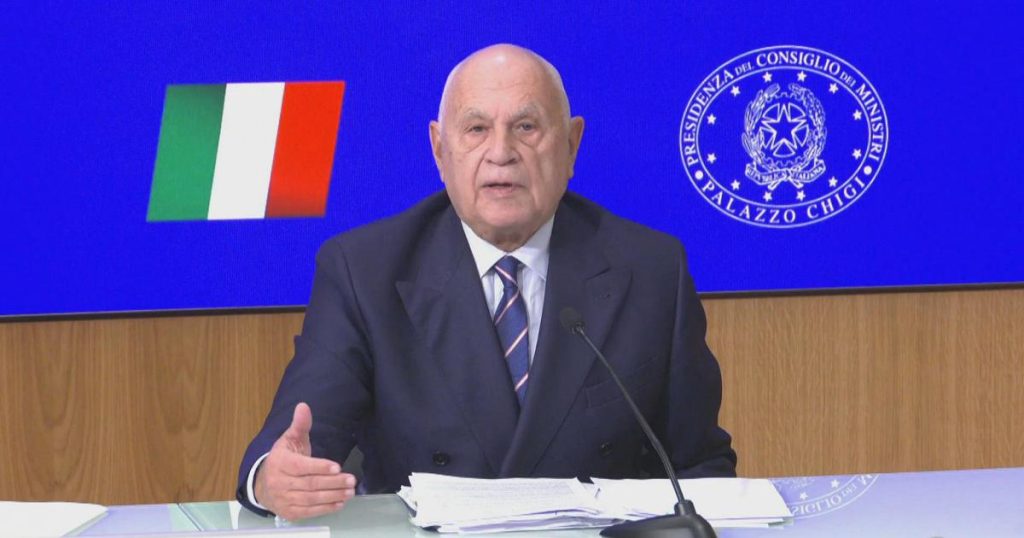Nordio, a government official, expressed dissatisfaction with how judges have interpreted a recent ruling from the European Court of Justice regarding immigration issues. According to Nordio, the judges did not fully understand the implications of the ruling and have not applied it correctly in their decisions. The European Court of Justice’s decision likely pertained to a specific case regarding migrant rights or asylum laws that was highly debated and contentious. Nordio’s comments suggest a disconnect between the judiciary and the government in how to interpret and implement European legal rulings on immigration matters.
Additionally, Nordio emphasized that judges should not have the authority to override or ignore new laws passed by the government, even if they believe them to be unconstitutional. He argued that if a judge deems a law to be in violation of the constitution, they should bring the issue to the Constitutional Court for review and resolution. This stance indicates a clear belief in the separation of powers and the importance of respecting the legislative process, even in cases where there may be disagreements over the constitutionality of specific laws. It also highlights the minister of Justice’s perspective on judicial activism and the proper role of the judiciary in relation to the legislature.
The topic of migrant rights and asylum laws is a contentious and highly debated issue in many European countries, with governments often facing criticism for their handling of immigration policies and procedures. Nordio’s comments regarding the judiciary’s interpretation of European legal rulings on immigration suggest that there may be broader disagreements between government officials and judges on how to address these complex and sensitive issues. The balance between upholding the rule of law and protecting the rights of migrants and asylum seekers is a delicate one, requiring careful consideration and collaboration between different branches of government.
By suggesting that judges should defer to the Constitutional Court on matters of constitutionality, Nordio is advocating for a system of checks and balances within the legal system to ensure that all laws are applied fairly and consistently. This approach seeks to prevent judges from overstepping their authority and making decisions that could potentially undermine the democratic process. It also underscores the minister of Justice’s commitment to upholding the rule of law and respecting the legal framework established by the constitution, even in cases where there may be disagreements over the interpretation of specific laws or regulations.
Overall, Nordio’s comments reflect a broader debate within the legal and political spheres about the appropriate role of the judiciary in interpreting and applying laws related to immigration and asylum. By highlighting the need for judges to adhere to the legal framework established by the government and seek resolution through the Constitutional Court in cases of constitutional disputes, Nordio is promoting a system of legal accountability and oversight that aims to ensure the fair and consistent application of laws. The interpretation of European legal rulings on immigration issues remains a complex and challenging task for judges and government officials alike, requiring ongoing dialogue and cooperation to address the diverse and evolving needs of migrant populations.


